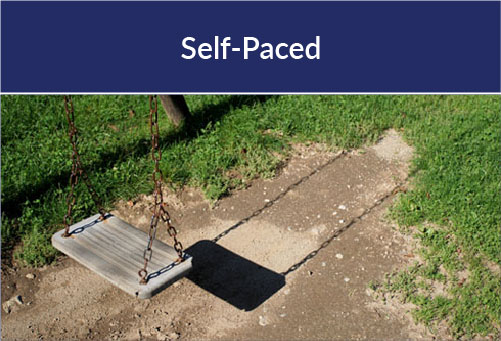


In the modern cyber-world, almost all criminal investigations have an online aspect that can be used to further investigations and more quickly solve otherwise difficult cases. Join us to examine open source online intelligence/information and learn how to leverage free platforms, databases, and web applications to strengthen criminal cases. Uncover little known facts and techniques to optimize results using online search engines and online internet resources, which will support your investigations and prosecutions. Learn how to complete and serve search warrants for a variety of electronic information and databases to further all types of investigations. Develop new skill sets to establish contacts and open-source intelligence networks to provide ongoing criminal and threat intelligence in your jurisdiction.

During these difficult times of social distancing and self-quarantine, there has been a dramatic increase in online activities by children, and a heightened concern for their safety by parents/guardians, educators, and child protection professionals. Kids and teens are unable to go to school, participate in sports or other activities, or hang out with their friends, and instead spend many hours in the online world. This webinar provides ICAC members and other child protection professionals with tools and resources to help parents/guardians and others create a safer environment for all children.

Learn more about Child Protector, a free application designed to improve the investigative, administrative, and judicial handling of child physical abuse cases, as well as child fatalities, in a manner that reduces trauma to the child and family. Utilizing sophisticated and detailed medical illustration, professional narration and animation as well as x-rays and real images, Child Protector demonstrates the location, characteristics, and biomechanics of injuries in young children commonly encountered by Children's Division (CD) workers, legal professionals, law enforcement, and medical providers. The app provides a realistic view of injury mechanisms that enhance the investigators ability to gather pertinent scene and witness information, thus improving the accuracy and efficiency of the investigation. Animations, narration, and real images detail how bruises, burns, head injuries, fractures, and abdominal injuries occur through both accidents and abuse.

Join us to learn about various strategies designed to assist tribal SORNA programs with providing information on sexual offenders and offending to community members.

Explore how to engage the community and victims in sex offender management and sexual violence prevention. Topics include strategies to engage victims and the community in issues related to sexual offending and offenders, best practices when planning cultural events, and victim and community safety.

Learn about the Tribal Justice System Planning Process (TJSPP) principles and how a comprehensive tribal justice system strategic plan can improve public safety and the quality of life in your community. This online training course is designed for grantees who have not participated in the onsite TJSPP course, as well as non-grantee tribes.

Gather information on the structure and interdependent functions/roles of a CART program. Learn about protocol development and management, development and use of Memoranda of Understanding, CART composition, training including tabletop exercises and field scenarios, and CART certification standards. Examine a case study which integrates all topics covered for effective CART leadership.

Join us to learn how to regularly and consistently attend to risk and needs between treatment, corrections, and victim/survivor services. Each 60 minute session features a brief overview presentation followed by an opportunity to engage in an in-depth facilitated discussion and question and answer (Q&A) session with subject matter experts, practitioners in the field, and other attendees. Your participation is encouraged and additional questions will be taken during this live session. Prior to the session, we will gather feedback from you about what you would like to learn about the topic from the experts.

Join us to discuss defining vicarious trauma, contributing factors to vicarious trauma, and strategies to stay healthy in our work including recognizing and managing vicarious trauma. Each 60 minute session features a brief overview presentation followed by an opportunity to engage in an in-depth facilitated discussion and question and answer (Q&A) session with subject matter experts, practitioners in the field, and other attendees. Your participation is encouraged and additional questions will be taken during this live session. Prior to the session, we will gather feedback from you about what you would like to learn about the topic from the experts,

Join us to define trauma informed care approaches, develop skills to best recognize and effectively address trauma, and discuss promising practices. Each 60 minute session features a brief overview presentation followed by an opportunity to engage in an in-depth facilitated discussion and question and answer (Q&A) session with subject matter experts, practitioners in the field, and other attendees. Your participation is encouraged and additional questions will be taken during this live session. Prior to the session, we will gather feedback from you about what you would like to learn about the topic from the experts.
